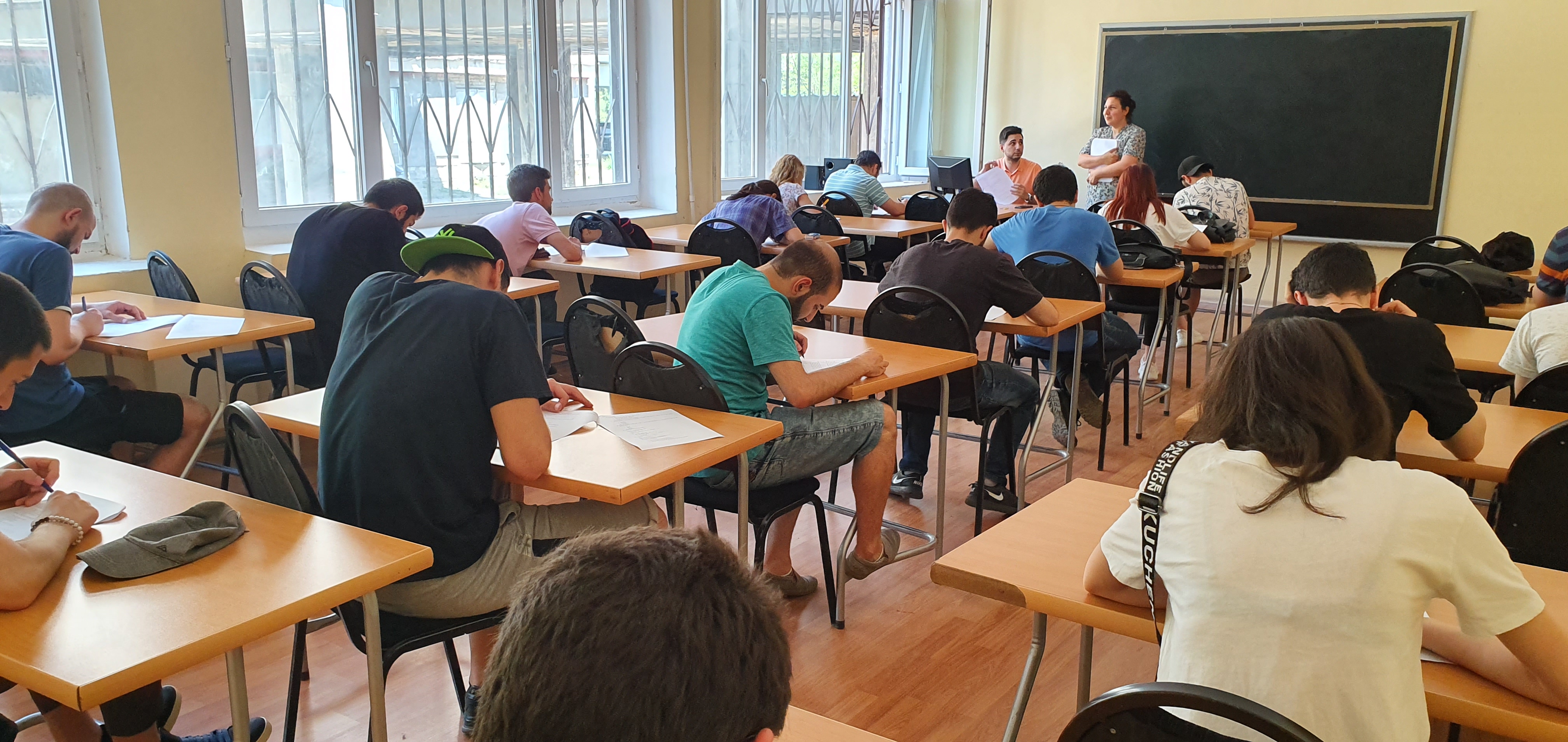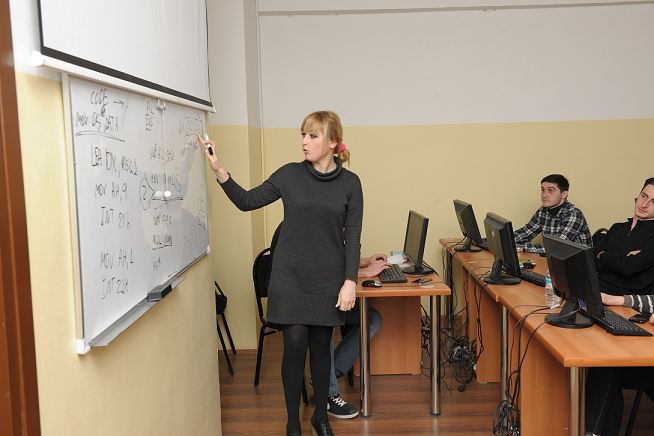
Ivane Javakhishvili Tbilisi State University (TSU) is a spiritual and intellectual successor of multi-century Georgian culture, humanistic traditions and old Georgian educational, scientific and cultural centers to accumulate the respective amount of credits for the accomplishment of each cycle of higher education.
The first cycle – Bachelor’s degree programme – at least 240 ECTS credits
From 2007 until 2010 there was a certified
specialist’s educational programme within the
framework of higher education, which covered 120-180 ECTS credits.

The students were admitted to these programmes commensurate with the procedure, envisaged by Georgian law, against a general education certificate.
A higher education institution is entitled to award an interim qualification to a student in the case of taking only a part of the educational programme (in the case of accumulation of ECTS credits envisaged for the short cycle within the first cycle educational programme). An interim qualification can be awarded after the attainment of the learning outcomes envisaged for a part of the respective educational programme, which cannot be less than the half of the net amount of ECTS credits envisaged for the educational programme concerned (from 1 September 2010).
The second cycle: Master’s degree Programme – at least, 120 ECTS credits
The third cycle: Doctorate – at least, 180 ECTS credits
Description of the Chemistry Bio-Chemistry program
The program is designed in accordance with regulation of TSU (N153/2017 (December 8, 2017) resolution of Academic Board of TSU on Procedures for Planning, Development and Introduction of Instructions and Approval of Educational Programs of BC, MA, and certified medical worker/dental programs of LEPL Ivane Javakhishvili Tbilisi State University), similar program of San Diego State University and ASC requirements.
Program content is in line with the requirements of BC level. The program uses ECTS credits.
Program participant academic, invited as well as support personnel, student of similar program, faculty academic personnel, faculty and university quality assurance service representatives participated in the design of the program.
The program will be published in TSU web-site after approval for such publication and accreditation.
The program presents variety of electives (42 credits).
Total number of credits: 240, including:
General required courses, 57 credits
Specialty (core) required courses, 141 credits
Electives, 42 credits
The structure of the program follows a sequence, where courses have admission preconditions (if available) and ensure step-by-step achievement of learning outcomes.
Courses are grouped into general required, specialty (core) required and elective courses:
General required courses include English, calculus and informatics courses, which are necessary to master specialty courses;
Specialty (core) required courses are created in line with Georgian and American standards. These courses will enable graduates to continue education, research and pursue career in chemistry and relative fields.
Elective courses include politics, economics, history, philosophy, etc., and enable students expand horizons and see the impact modern science has on our daily life.
Teaching and learning methods on the Chemistry Bio-Chemistry program
The program is implemented using diverse student-centered and flexible teaching methods, including:
Electronic teaching: materials and texts for the course are provided through electronic system, which are adapted to the level of knowledge of the student and offer relevant level tasks, gradually increasing in complexity, until the student reaches appropriate level of knowledge
Flip-class: the lecturer places video recording of the lecture online, which can be viewed by the students at the time of their convenience, while the lecture is used for discussing materials.
Lab work: students work in laboratory individually or in small groups which equips them with skills for independency as well as groupwork.
Courses also uses a mix of methods like discussion, presentation, explanation learning, brainstorming, analysis and synthesis.
Teaching methods are in line with the requirements for BC level and ensures reaching learning objectives. Since recruitment of foreign students for the program is important, elective courses for Georgian language are offered so that they can closely integrate with local students. Compulsory communication course is also offered, which makes integration of students of various cultures or skill levels easier. Academic, invited and support personnel take into consideration diverse cultural and other needs.
Evaluation of Students:General evaluation criteria are as follows for all courses:
Positive evaluation:
(A) Excellent – 91-100 points of maximum evaluation;
(B) Very Good – 81-90 points of maximum evaluation;
(C) Good –71-80 points of maximum evaluation;
(D) Satisfactory – 61-70 points of maximum evaluation;
(E) Fair – 51-60 points of maximum evaluation.
Two types of negative evaluation:
(FX) Could not pass – 41-50 points of maximum evaluation, meaning the student needs more work to pass and is given one chance to take additional exam after independent work;
(F) Failed – 40 points or less of maximum evaluation, meaning the work conducted by the student is not enough and he/she needs to take the course again. In case of FX points in educational program component, the institution is required to appoint additional exam within 5 days after announcing results of final exams.
Evaluation for each of the courses contains sub-components of interim and final exams, with appropriate thresholds of competences.